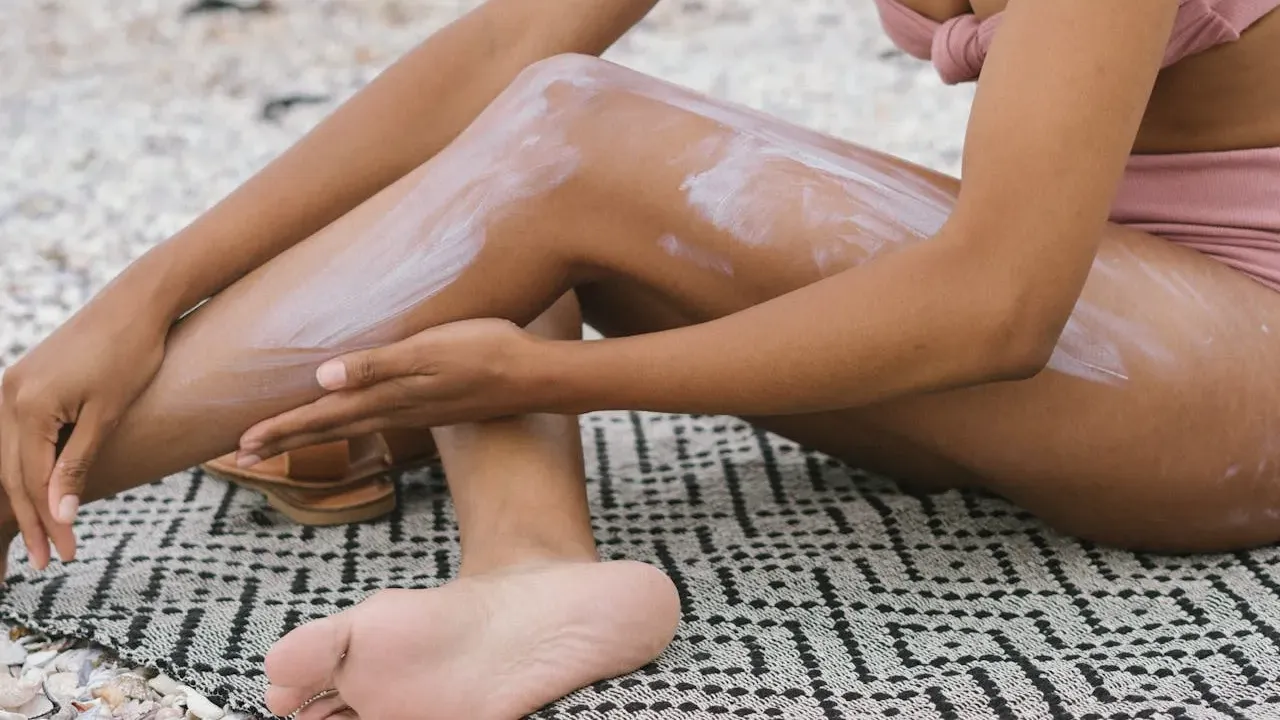Does Tanning with Sunscreen Damage Skin? Debunking the Myth

EXTRA 5% OFF ON PREPAID

There are many misconceptions about sunscreen and its role in tanning. Some people believe that wearing sunscreen completely prevents tanning, while others think that tanning with sunscreen can damage the skin. In this article, we will debunk these myths and provide you with the facts.
Before we dive into the myths surrounding sunscreen and tanning, it's important to understand the different types of UV rays emitted by the sun. There are two main types: UVA and UVB. Now, let's address the question of what UV rays are responsible for tanning.
When it comes to tanning, it is primarily the UVA rays that play a significant role. These rays penetrate deep into the skin, reaching the underlying layers called the dermis. UVA rays stimulate the production of melanin, the pigment responsible for giving our skin its color. As a result, our skin darkens, leading to that coveted sun-kissed glow.
On the other hand, UVB rays are responsible for causing sunburns. These rays primarily affect the outer layer of the skin, known as the epidermis. UVB rays have a shorter wavelength and are more intense than UVA rays. While they contribute to the tanning process to some extent, their main effect is the reddening and burning of the skin.
It's important to note that both UVA and UVB rays can be harmful to our skin. Prolonged exposure to these rays can lead to premature aging, wrinkles, and an increased risk of skin cancer. That's why it's crucial to protect our skin from the damaging effects of the sun by using sunscreen.
Now that we understand the different types of UV rays and their role in tanning, let's debunk some common myths surrounding sunscreen and tanning. By dispelling these misconceptions, we can ensure that we make informed decisions when it comes to protecting our skin while enjoying the sun.
One common misconception is that a higher SPF will prevent tanning. It's important to understand that the purpose of sunscreen is to protect our skin from harmful UV radiation, which can lead to sunburns, premature aging, and an increased risk of skin cancer. Sunscreens with higher SPF ratings, such as SPF 30 or SPF 50, provide better protection against UVB rays, the primary cause of sunburns.
However, it's crucial to note that SPF only indicates the level of protection against UVB rays, not UVA rays. UVA rays are responsible for deeper skin damage, including premature aging and skin cancer. Therefore, it's essential to choose a broad-spectrum sunscreen that protects against both UVA and UVB rays.
While sunscreen with a higher SPF can significantly reduce the risk of sunburn, it does not completely block all UV rays. Even with SPF 50 or higher, a small percentage of UV rays can still penetrate the skin. This means that some level of tanning can still occur, especially with prolonged sun exposure.
It's important to remember that tanning is a sign of skin damage. When our skin is exposed to UV radiation, it produces more melanin, the pigment responsible for skin color. This increased melanin production is the skin's way of trying to protect itself from further damage. However, this does not mean that tanning is a safe or healthy process.
To protect your skin effectively, it's crucial to apply sunscreen generously and frequently, regardless of the SPF level. Experts recommend using at least SPF 30 and reapplying every two hours, or more frequently if you are sweating or swimming. Additionally, seeking shade, wearing protective clothing, and using sunglasses and wide-brimmed hats can further enhance your sun protection.
Tanning with sunscreen can offer some benefits, such as reducing the risk of sunburn and protecting the skin from harmful UV rays. However, it's important to note that excessive sun exposure, even with sunscreen, can still damage the skin and increase the risk of skin cancer.
No, sunscreen does not completely prevent tanning. It provides some protection against UV rays but does not block them entirely.
Yes, you can still tan with sunscreen on. However, the level of tanning may be reduced compared to tanning without sunscreen.
No, sunscreen does not stop you from tanning. It helps to protect your skin from UV damage, but some UV rays can still penetrate and stimulate melanin production.
No, SPF does not prevent tanning. It offers protection against UVB rays, but some UVA rays can still penetrate the skin and stimulate melanin production.
Yes, you can still tan through sunscreen. Sunscreen provides some protection, but it does not completely block UV rays.
In conclusion, wearing sunscreen does not completely prevent tanning, but it does offer some protection against UV rays. Tanning with sunscreen is possible, but it's important to remember to reapply sunscreen regularly and limit sun exposure to protect your skin. While tanning can be a natural and healthy process, it's essential to prioritize sun protection and take necessary precautions to avoid excessive UV exposure.